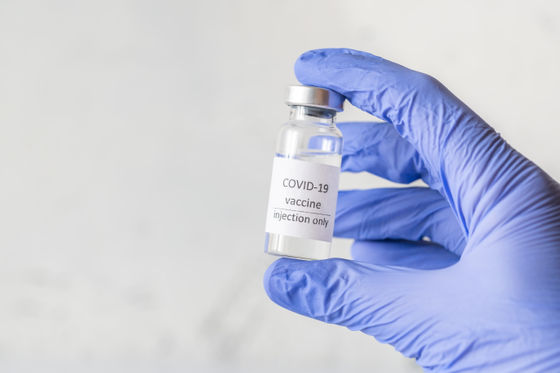Doctors answer 5 frequently asked questions such as 'Do I still need a mask after vaccination with the new corona?'

In October 2020, the US Food and Drug Administration (FDA) advisory board released a report leading to emergency use approval of the new coronavirus vaccine ' BNT162b2 ' of the major pharmaceutical company Pfizer, and the new coronavirus. The movement toward the spread of vaccines is steadily progressing. Dr. Jason McKnight, a primary care physician at Texas A & M University in the United States, has compiled five frequently asked questions and answers about such a new coronavirus vaccine.
The coronavirus vaccine: A doctor answers 5 questions
https://theconversation.com/the-coronavirus-vaccine-a-doctor-answers-5-questions-151985
◆ 1: Do I need to wear a mask after being vaccinated?
Dr. McKnight said, 'After being vaccinated against the new coronavirus infection (COVID-19), it is likely that masks will continue to be encouraged in public, because the vaccine efficacy rate is 95. Even if it is%, 5% still have a chance of getting infected, 'he said, saying that it is necessary to take measures to prevent infection by wearing a mask even after vaccination.
In addition, since the mask also has the effect of preventing respiratory infectious diseases other than COVID-19, it can be expected to have the effect of reducing the impact on the medical system, which has already placed a heavy burden. In fact, research results show that infectious diseases other than COVID-19 are decreasing sharply all over the world, and that the ' social distance expansion strategy ' implemented as a measure against COVID-19 is also suppressing other infectious diseases. Etc. have been reported.
It is confirmed that the 'social distance expansion strategy' for the new coronavirus countermeasures also suppresses other infectious diseases --GIGAZINE

Dr. McKnight also pointed out that masks can also help prevent the spread of infection in such cases, as some people may be infected with COVID-19 asymptomatically after vaccination.
◆ 2: How can I be sure that I will be vaccinated twice with Pfizer?
The vaccine developed by Pfizer is said to require a second dose, three weeks after the first dose. Regarding this point, Dr. McKnight said, 'Pfizer's vaccine is distributed on the assumption that it will be vaccinated twice, and each medical institution keeps a record of the vaccinated person and confirms it at the time of the second vaccination. 'I will.' He emphasized that consideration was given to ensuring that the patient could be vaccinated twice.
◆ 3: How do experts confirm the safety of vaccines?
According to Dr. McKnight, public health experts are tracking the safety of vaccines in multiple ways when distributing vaccines to a large number of people. First, those who have been vaccinated in a clinical trial to determine the effectiveness of the vaccine will also participate in follow-up studies to ensure that there are no long-term safety issues.
In addition, even after the vaccine has been widely distributed, Phase IV post-marketing clinical trials have been conducted to confirm that there are no safety issues and that the vaccine maintains the originally expected effect. ... apparently ...

◆ 4: When do you know when to get vaccinated?
In the United States, anyone who wants to know when to get vaccinated can contact state health officials for the latest information and more information. Dr. McKnight also advised to contact your healthcare provider if you have any questions.
◆ 5: Where should I get vaccinated?
How the vaccines will be distributed has not been decided at the time of writing, but Dr. McKnight said, 'Most vaccines are likely to be delivered to medical institutions, healthcare provider offices, and some pharmacies. I said. If you want to know the nearest place to get vaccinated, please contact the health authority or medical institution in your area.
Related Posts:
in Note, Posted by log1l_ks







